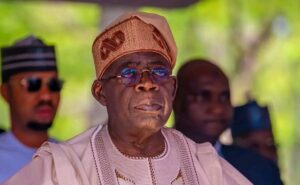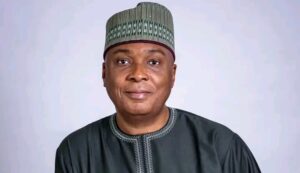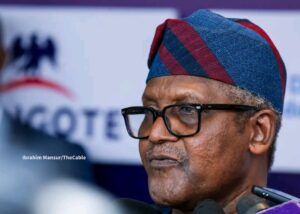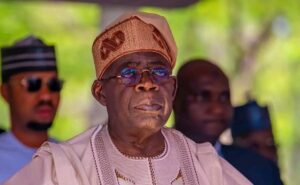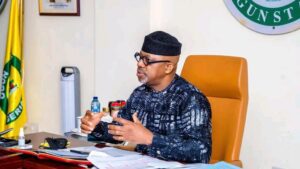World Bank to Nigeria: NYSC your goldmine

The World Bank has expressed support for Nigeria’s National Youth Service Corps, NYSC, scheme, describing it as a goldmine capable of boosting the nation’s drive towards industrialization. The Bank therefore urged the Federal Government to leverage on the scheme.
World Bank Country Director in Nigeria, Dr Ndiame Diop stated this while speaking with Arise TV on the sidelines of the World Bank and IMF meetings in Washington DC. Diop, who spoke on the necessity of skills for development, lamented the large number of out-of-school children which he placed at between 15 and 17 million. He also stressed the need for adequate nutrition for children under five, saying 11 million of such kids have stunted growth.
His words: “Creating jobs to tackle youth unemployment is a critical area where the government has to make efforts to accelerate the pace of job creation. You have to start investing in the supply of skills and you need to start with the foundation; that is, even before the kids go to school.
At the basic education level, you really need to improve the quality. In Nigeria, the first order of business is to just get them to school because the out-of-school children in Nigeria are very large – between 15 and 17 million. Get them to school so that the learning outcomes will prepare them for the labour market.
The rate of stunting in Nigeria is just too high for the country. Over 11 million children under five are stunted; you have to eliminate that. You have to make sure that there is no longer stunting so that when they get to school, they are well-prepared to learn. You need to improve the quality of education to prepare them for the labour market.
“You have to also look at issues related to how you can match skills with the needs of firms. There’s one thing which I learned recently which is a real goldmine for Nigeria; the NYSC. It’s amazing to me. If you leverage that, then help that institution to provide the right skills to these 300,000 or 400,000 graduates per year, this will be super helpful. In fact, the World Bank is looking into that.
These areas that I mentioned are areas where we have projects and operations and we are also helping to reform. It’s not just about financing these projects but about helping to institutionalise things such that there is sustainability. At the end of the project, Nigeria will be able to continue to do those investments at the state and federal level.” He also hinted at the World Bank’s project designed to help the girl child excel in technology.
“We have one project that is really focused on not only keeping girls in school but also training them in ICT, and digital skills and helping them to also access STEM fields because the enrolment of girls in STEM fields is quite low compared to men. It’s about 13% for engineering programmes, for polytechnics it’s 20%, that’s very low. We need to address these stereotypes that are pushing young girls to education and art. All of that is good but we also need women in those areas because that is what will drive technology and transformation in the future.”
Dr Ndiame expressed optimism about some signature reforms which he said are “steering the economy in the right direction”. He noted that “Nigeria cannot grow fast without doing the hard work; we will have to fix power, fix trade which is important because of all these trade bottlenecks that firms are facing in Nigeria. Fixing security is also important so that the mobility of goods within Nigeria will be much easier. This country has the scale and potential for economies of scale that is unique in Africa. The country has a private sector that is the most vibrant, and dynamic in Africa. Nigerians are extremely entrepreneurial, so we just need good public policy to support them and we need a very good partnership between the public sector and the private sector- a sort of productive alliance for growth and jobs.”
He however stressed that “these reforms come with quite high social cost; inflation is high and many Nigerians are feeling the pinch. It’s urgent to support the people that are really struggling with high inflation. Another thing that is critical is to ensure that the savings from these reforms are spent on things like education, health, infrastructure, and social protection so that Nigerians can feel the benefits of these reforms.”


